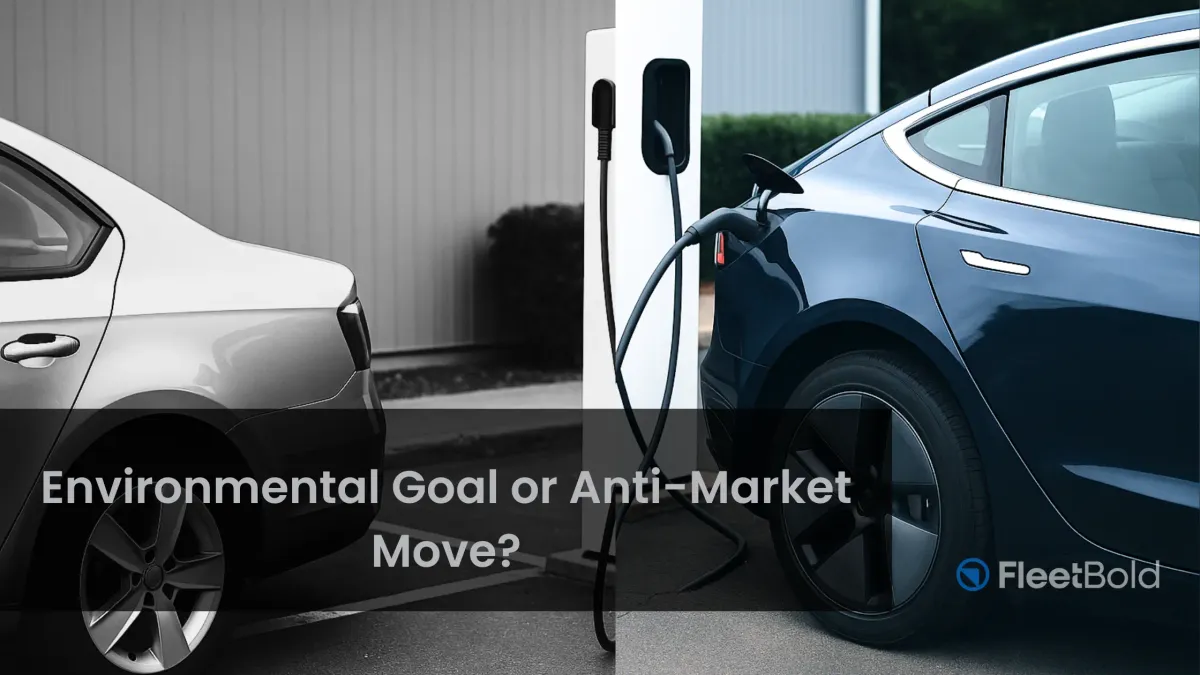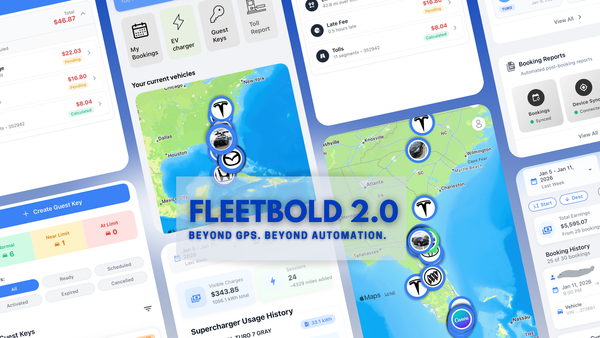2030 Ban on ICE Rental Cars in Europe: Environmental Goal or Anti-Market Move?
The EU may require rental companies to purchase only electric vehicles by 2030. A bold climate move — or a restriction on market freedom?

Note: In this article, ICE refers to Internal Combustion Engine vehicles cars powered by gasoline or diesel as opposed to electric vehicles (EVs).
The EU’s Next Big Push for Electrification
The European Union is considering a mandate that would force rental companies and large corporate fleets to purchase only electric vehicles starting in 2030 five years ahead of the EU’s broader 2035 deadline for ending sales of new internal combustion engine (ICE) vehicles.
First reported by Bild and echoed by outlets like Road & Track and Bloomberg, the proposal targets a sector that makes up roughly 20% of all new car registrations in the EU. If approved, it would accelerate the transition to electric mobility in a very visible market: the rental car industry.
Why This Matters for the Car Rental Industry
Car rental fleets turn over quickly, meaning the shift to EV-only purchases would reshape available inventory in just a few years. Customers renting in 2031 or 2032 could find little to no ICE options available, even if they prefer them for range, fueling convenience, or cost.
For companies, this isn’t just about changing the cars in the lot it’s about rethinking infrastructure, maintenance protocols, and capital expenditure strategies.
Perspectives and Analysis
1. Political Perspective
This move reflects a growing willingness by EU policymakers to take a direct hand in shaping market transitions. Supporters see it as decisive action to meet climate goals. Critics argue it’s an overreach bypassing natural market evolution and replacing it with top-down control.
2. Economic Perspective
Rental companies will face higher upfront costs as EVs remain more expensive to purchase than ICE equivalents. The secondary market could be flooded with used EVs, and supply chains for batteries already under strain could become a bottleneck.
3. Environmental Perspective
While EVs produce zero tailpipe emissions, their environmental benefit depends heavily on how the electricity grid is powered. And the manufacturing process, especially battery production, still carries a significant carbon footprint.
4. Consumer Perspective
If only EVs are available in rental fleets, travelers lose the ability to choose what fits their needs best. This could be especially challenging in rural or underdeveloped regions with limited charging infrastructure, or for customers who prioritize quick refueling over sustainability.
5. Technological Perspective
The rule assumes EV tech will be mature enough by 2030 to meet all rental use cases. Range, charging times, and battery longevity may still present challenges, and regulation could outpace actual innovation.
6. Market and Competition Perspective
Automakers with strong EV lineups stand to gain, while others could lose market share. Smaller rental companies might struggle to comply, potentially leading to consolidation in the industry.
7. Free Market Perspective
From a free market standpoint, this mandate narrows competition and removes consumer choice. In a capitalist system, technology adoption is typically driven by demand, not legislation. Critics see this as a step toward a more controlled market where political directives outweigh consumer preference.
The Freedom Question
Beyond technology and climate goals, this debate hits at the core of market philosophy: Should governments dictate the timeline for technological transitions, or should consumers and market forces decide?
For some, the answer is clear urgent climate action requires bold regulation. For others, it’s a warning sign of overreach that could stifle competition, innovation, and personal choice.
Conclusion
If the EU passes this proposal, the rental car industry will be among the first sectors to feel the full force of an EV-only mandate. The move could speed up adoption and normalize EV use, but it also risks alienating consumers and reducing market flexibility.
Balancing climate objectives with economic viability and consumer freedom will be the true test and the outcome could set a global precedent for how transportation policy is shaped in the years ahead.
FAQs
Will this ban apply to existing ICE rental cars?
No, the proposal focuses on purchases from 2030 onward. Existing ICE vehicles could remain in fleets until retired.
Why target the rental sector first?
Rental fleets refresh quickly and are highly visible to consumers, making them an effective showcase for EV adoption.
Could rental prices go up?
Yes. Higher purchase prices for EVs and investments in charging infrastructure could be passed on to customers.
What if charging infrastructure isn’t ready?
That’s one of the main criticisms infrastructure needs to scale rapidly to match demand from both private owners and rental fleets.
Will other regions follow?
Possibly. If the EU moves forward successfully, it could inspire similar policies in other markets.






